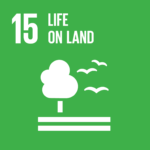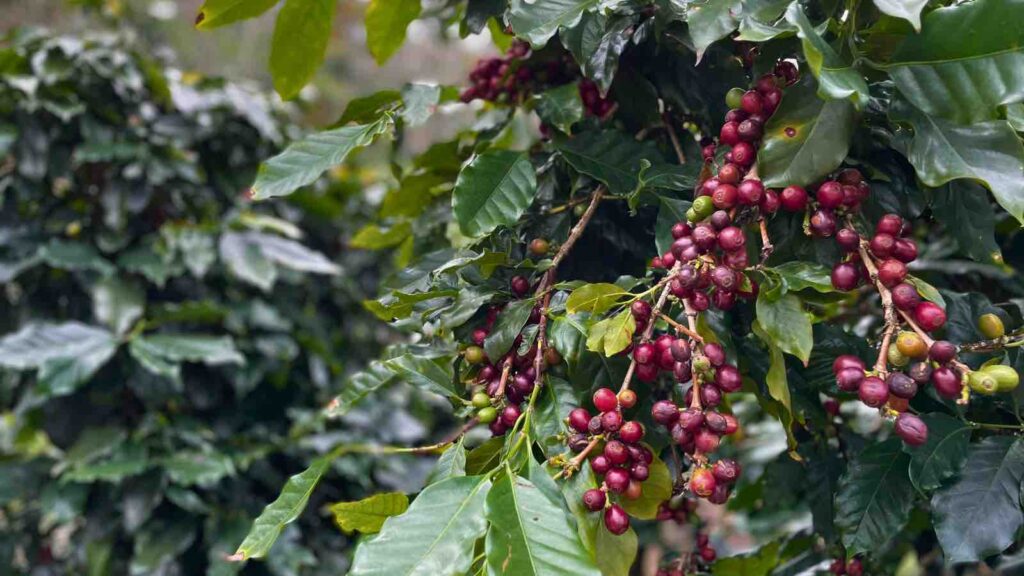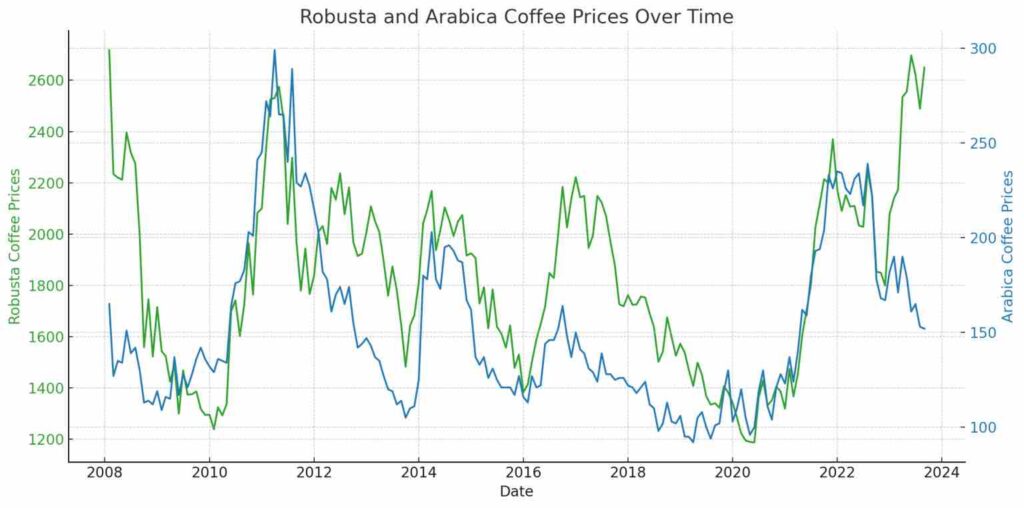Your cup of coffee is getting more expensive. Coffee prices at their highest in 18 months as harvests struggle.
In a world where the morning cup of coffee has become a non-negotiable ritual for millions, a perfect storm of climate change, supply chain disruptions, and growing global demand is threatening to make that daily indulgence significantly more expensive.
RELEVANT SUSTAINABLE GOALS



Coffee Supply Chain Disruptions
From the high-end arabica beans favored by chains like Starbucks to the more budget-friendly robusta variety, coffee prices are spiking across the board. The culprit? Major supply disruptions from Vietnam to Brazil, exacerbated by the long-term effects of climate change on traditional coffee-growing regions.
The impact is rippling through the entire coffee industry. JM Smucker Co, a dominant force in the U.S. at-home coffee market with brands like Folgers and Café Bustelo, has already implemented price hikes this summer. Across the Atlantic, Pret A Manger, a popular UK chain, has scrapped its generous coffee subscription service that once offered customers up to five drinks per day.
Futures price of coffee
Even small, independent coffee shops are feeling the squeeze. Variety Coffee Roasters in New York City recently raised its retail prices by about 5% – its first increase in five years. Patrick Grzelewski, the chain’s director of coffee, expressed the industry’s reluctance to raise prices, stating, “We have always triple second-guessed ourselves before we pulled the trigger. But it is just not something anyone can avoid anymore.”
The numbers paint a stark picture. The price of a standard coffee contract – 100 60-kilogram bags – recently topped $300, representing a 28% increase for the year and a staggering 56% jump compared to a year ago.
Climate change is playing a significant role in this price surge. Soaring global temperatures and erratic rainfall patterns are making it increasingly difficult for traditional exporting nations like Vietnam, Indonesia, and Brazil to maintain their harvest levels.
Ironically, as coffee becomes more expensive, its cultural significance seems to be growing. Even in traditional tea-drinking strongholds, coffee culture is taking root. A recent working paper from the National Bureau of Economic Research even suggests that the introduction of a Starbucks to a neighborhood without a coffee shop can increase the number of startups it produces by up to 12% a year.
However, as the planet continues to warm, sustaining these coffee-drinking habits – and the economic activity they seem to spur – may become increasingly challenging. The coffee industry, and coffee lovers worldwide, may need to brace for a future where their favorite brew comes with an ever-steeper price tag.
You may also be interested in :
Waking Up To Bitter Brew: Climate Change Threatens Coffee’s Future




